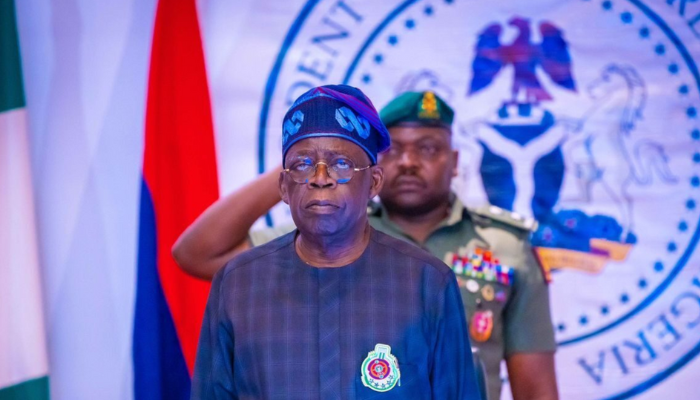President Bola Tinubu has directed all ministries, departments and agencies (MDA) of the government to release monthly reports of their implementation of the 2024 budget to maintain an effective budget cycle.
The president made this statement on Monday in the State House in Abuja as he signed the appropriation bill into law.
The President, speaking as the bill was signed, assured Nigerians that the implementation of the budget would be efficiently pursued and vigilantly monitored.
“All the institutional mechanisms shall be held to account in ensuring diligent implementation.
“All MDAs have been directed to take responsibility and provide monthly Budget Performance Reports to the Ministry of Budget and Economic Planning, which in turn shall ensure the veracity of such.
“The Minister of Finance and Co-ordinating Minister of the Economy shall hold regular reviews with the Economic Management Team and, in addition, I shall Chair periodic Economic Coordination Council meetings,” he said.
The 2024 budget allocates N28.7 trillion with a focus on defence and internal security, job creation, macroeconomic stability, enhanced investment environment, human capital development, poverty reduction, and social security.
The president emphasised that his commitment to enhance investment promotion while creating a rules-based society that favours no individual over the law begins with important reforms in the Nigerian judiciary, the funding for which is captured in the 2024 Appropriation Act.
News continues after this ad
“Funding the judiciary is a major element in our effort to support a just, rules-based society. Statutory transfer to the Judiciary has been increased from N165 billion to N342 billion,” the president said.
What you should know
During the weekend, the National Assembly passed the 2024 appropriation bill, raising its size from President Bola Tinubu’s proposed N27.5 trillion to N28.7 trillion. The budget was increased by N1.2 trillion.
In the bill passed, the sum of N1.74 trillion was earmarked for statutory transfers, N8.27 trillion for debt servicing, N8.76 for recurrent expenditure and N9.99 trillion for capital expenditure.
The Senate said that to accommodate further requests from the Executive for additional funding, the Committee on Appropriation made some adjustments to the bill.
Some of the adjustments made include foreign exchange differential, an increase of Government-Owned Enterprises’ (GOEs’) revenue, GOE’s personnel reduction, Service Wide vote (wage adjustment) and reduction from Service Wide.
President Bola Tinubu had late November presented the 2024 budget estimates of N27.5trn to the National Assembly.
Christened the ‘Budget of Renewed Hope’, the President said it would ensure macro-economic stability, poverty reduction, and greater access to social security, amongst others.
The President of the Senate, Godswill Akpabio, had assured Nigerians that the bill would be transmitted to the President for expedited passage into law for it to come into effect on January 1, 2024.


